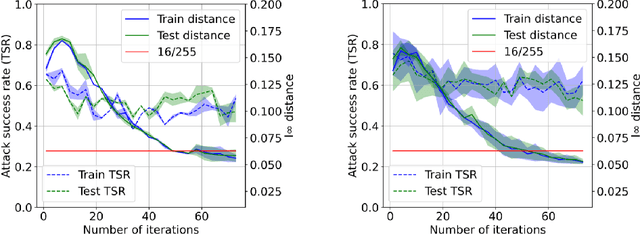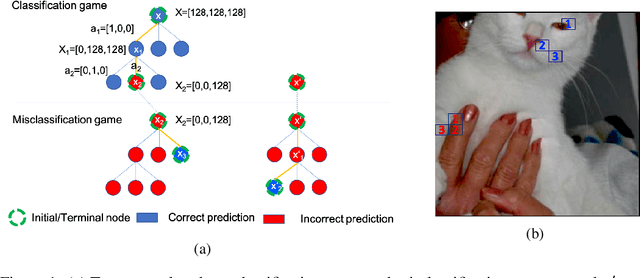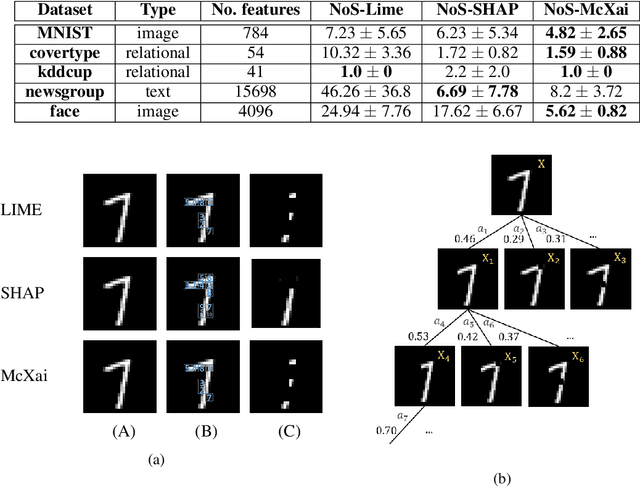Likun Fang
randomHAR: Improving Ensemble Deep Learners for Human Activity Recognition with Sensor Selection and Reinforcement Learning
Jul 15, 2023Abstract:Deep learning has proven to be an effective approach in the field of Human activity recognition (HAR), outperforming other architectures that require manual feature engineering. Despite recent advancements, challenges inherent to HAR data, such as noisy data, intra-class variability and inter-class similarity, remain. To address these challenges, we propose an ensemble method, called randomHAR. The general idea behind randomHAR is training a series of deep learning models with the same architecture on randomly selected sensor data from the given dataset. Besides, an agent is trained with the reinforcement learning algorithm to identify the optimal subset of the trained models that are utilized for runtime prediction. In contrast to existing work, this approach optimizes the ensemble process rather than the architecture of the constituent models. To assess the performance of the approach, we compare it against two HAR algorithms, including the current state of the art, on six HAR benchmark datasets. The result of the experiment demonstrates that the proposed approach outperforms the state-of-the-art method, ensembleLSTM.
Universal Distributional Decision-based Black-box Adversarial Attack with Reinforcement Learning
Nov 15, 2022



Abstract:The vulnerability of the high-performance machine learning models implies a security risk in applications with real-world consequences. Research on adversarial attacks is beneficial in guiding the development of machine learning models on the one hand and finding targeted defenses on the other. However, most of the adversarial attacks today leverage the gradient or logit information from the models to generate adversarial perturbation. Works in the more realistic domain: decision-based attacks, which generate adversarial perturbation solely based on observing the output label of the targeted model, are still relatively rare and mostly use gradient-estimation strategies. In this work, we propose a pixel-wise decision-based attack algorithm that finds a distribution of adversarial perturbation through a reinforcement learning algorithm. We call this method Decision-based Black-box Attack with Reinforcement learning (DBAR). Experiments show that the proposed approach outperforms state-of-the-art decision-based attacks with a higher attack success rate and greater transferability.
McXai: Local model-agnostic explanation as two games
Jan 04, 2022


Abstract:To this day, a variety of approaches for providing local interpretability of black-box machine learning models have been introduced. Unfortunately, all of these methods suffer from one or more of the following deficiencies: They are either difficult to understand themselves, they work on a per-feature basis and ignore the dependencies between features and/or they only focus on those features asserting the decision made by the model. To address these points, this work introduces a reinforcement learning-based approach called Monte Carlo tree search for eXplainable Artificial Intelligent (McXai) to explain the decisions of any black-box classification model (classifier). Our method leverages Monte Carlo tree search and models the process of generating explanations as two games. In one game, the reward is maximized by finding feature sets that support the decision of the classifier, while in the second game, finding feature sets leading to alternative decisions maximizes the reward. The result is a human friendly representation as a tree structure, in which each node represents a set of features to be studied with smaller explanations at the top of the tree. Our experiments show, that the features found by our method are more informative with respect to classifications than those found by classical approaches like LIME and SHAP. Furthermore, by also identifying misleading features, our approach is able to guide towards improved robustness of the black-box model in many situations.
 Add to Chrome
Add to Chrome Add to Firefox
Add to Firefox Add to Edge
Add to Edge